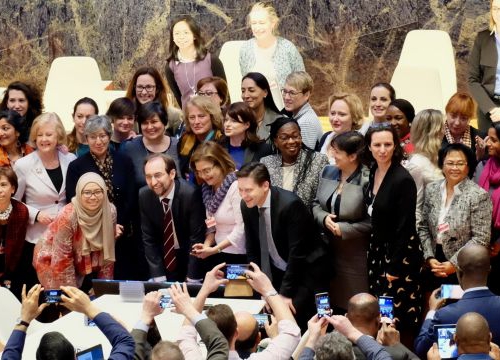The Paris Principles at 25: How National Human Rights Institutions Have Contributed to Promoting and Protecting Human Rights and What They Can Do in the Future
Event


GANHRI
Hosted by the Geneva Academy, the Permanent Mission of Australia, the Australian Human Rights Commission and the Global Alliance of National Human Rights Institutions
In 1993, the international community adopted the Paris Principles, encouraging states to establish national institutions for the protection and promotion of human rights. These institutions, now commonly known as National Human Rights Institutions or NHRIs, have since become an integral part of the international and national human rights systems.
NHRIs play an essential role in promoting the implementation by states of their international human rights obligations, and to translate those into lived realities for the people on the ground. In line with their mandates and functions under the Paris Principles, NHRIs help states engage meaningfully in the international human rights system and provide a source of independent analysis and accountability where states fall short in fulfilling their responsibilities.
This event will explore the ways in which NHRIs have contributed to improving the lives of individuals around the world over the past 25 years, and the role they continue to play in promoting and protecting human rights both domestically and internationally.
The event will also look to the future of NHRIs, and the key challenges and opportunities ahead. Chief among these will be the way in which NHRIs engage with the 2030 Agenda for Sustainable Development, and how their core work is changing to adapt to the paradigm of the Sustainable Development Goals and the principle to ‘leave no-one behind’.
Moderator
- Dr Christophe Golay, Strategic Adviser on Economic, Social and Cultural Rights and Senior Research Fellow, Geneva Academy of International Humanitarian Law and Human Rights
Speakers
- Professor Rosalind Croucher, President, Australian Human Rights Commission
- Professor Beate Rudolf, Chairperson, Global Alliance of National Human Rights Institutions and Director, German Institute for Human Rights
Light Refreshments
The presentation will be followed by light refreshments.










